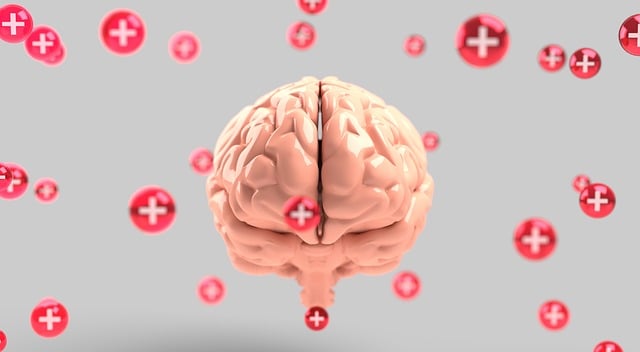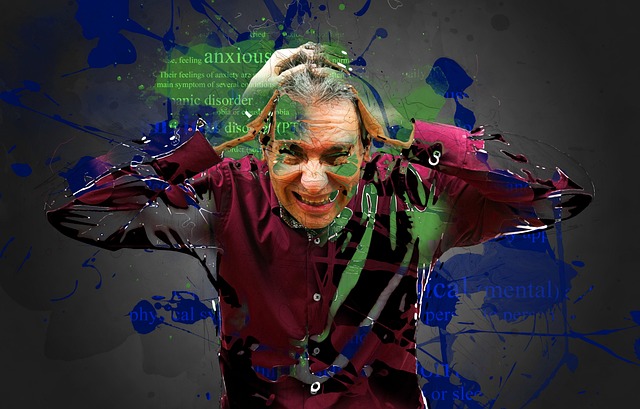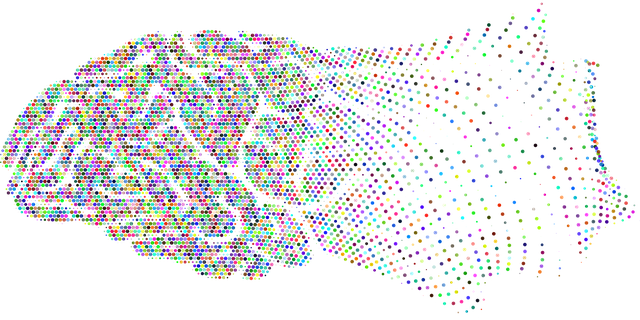Greenwood Village Crisis Counseling Therapy (GVCCT) tackles the harmful stereotypes associated with mental illness through its Mental Wellness Podcast Series. By sharing authentic narratives and expert insights, GVCCT educates listeners on emotional regulation and fosters open dialogue. The podcast series includes guidance on journaling exercises for emotional well-being, promoting a more inclusive approach to mental health. GVCCT also collaborates with media outlets, emphasizing accurate representations, and offers evidence-based practices for holistic support, significantly enhancing mental health conversations in popular media.
In today’s digital era, media representation of mental illness significantly influences public perception. This article delves into the complex issue of mental health portrayal in media, exploring how stereotypes and misinformation can perpetuate stigma. We present strategies for promoting accurate depictions, highlighting the innovative approach of Greenwood Village Crisis Counseling Therapy (GVCCT). As a case study, GVCCT demonstrates how community engagement and professional counseling can challenge narratives, fostering understanding and support for those facing mental health challenges.
- Understanding Mental Illness Representation in Media
- The Impact of Stereotypes and Misinformation
- Strategies for Promoting Accurate Portrayals
- Greenwood Village Crisis Counseling Therapy: A Case Study Approach
Understanding Mental Illness Representation in Media

Media plays a significant role in shaping public perception about mental illness. Accurate and empathetic representation is crucial for reducing stigma and fostering understanding. However, media often portrays mental health issues in simplistic or sensationalized ways, perpetuating misconceptions. At Greenwood Village Crisis Counseling Therapy, we recognize this challenge and strive to provide guidance through our Mental Wellness Podcast Series Production, offering authentic narratives that reflect the complexities of mental illness.
By engaging with real stories and expert insights, we aim to educate listeners about various aspects of emotional regulation and mental wellness. Encouraging open dialogue is key to challenging stereotypes. We believe this Emotional Regulation and mental wellness journaling exercise guidance can empower individuals to seek help and support when needed. Through these efforts, we hope to create a more inclusive and supportive environment for everyone’s mental health journey.
The Impact of Stereotypes and Misinformation

The media’s portrayal of mental illness often perpetuates harmful stereotypes and misinformation, which can significantly impact public understanding. When characters with mental health struggles are predominantly depicted as violent, unpredictable, or hopeless, it contributes to a fear-based perception among viewers. This misrepresentation not only stigmatizes individuals seeking therapy but also discourages others from reaching out for help. For instance, showing a person with depression as solely sad and lethargic fails to capture the diverse symptoms and experiences of this complex condition, such as anxiety, anger, or cognitive challenges, which are just as prevalent.
Greenwood Village Crisis Counseling Therapy recognizes these issues and aims to challenge such narratives through its initiatives. By promoting accurate representations in media, they encourage empathy building strategies that foster a supportive environment for those facing mental health struggles. The organization also emphasizes the importance of community outreach programs and stress management workshops as effective tools to combat misinformation. These efforts contribute to a more nuanced understanding of mental illness, ultimately reducing stigma and encouraging early intervention and treatment-seeking behaviors.
Strategies for Promoting Accurate Portrayals

To promote accurate representations of mental illness in media, a collaborative approach is necessary. Organizations like Greenwood Village Crisis Counseling Therapy play a vital role by partnering with media outlets to ensure sensitivity and authenticity in storytelling. This includes providing consultation during script development and offering insights into the complexities of various mental health conditions. By involving experts, media professionals can avoid stereotyping and misrepresentations that often plague mental illness narratives.
Additionally, encouraging diversity among writers and creators can significantly enhance accuracy. Incorporating individuals with lived experiences of mental wellness, either through direct involvement or consultation, brings a nuanced perspective to storytelling. This approach, coupled with research-backed information, ensures that media content not only entertains but also educates audiences about mental health, fostering empathy and understanding. Such initiatives contribute to the broader goal of mental wellness coaching programs development by promoting positive change in societal perceptions.
Greenwood Village Crisis Counseling Therapy: A Case Study Approach

Greenwood Village Crisis Counseling Therapy (GVCCT) offers a compelling case study approach to tackling mental illness representation in media. By providing a safe space for individuals struggling with various mental health challenges, GVCCT focuses on evidence-based practices such as stress reduction methods and inner strength development. This holistic approach not only aids in managing symptoms but also empowers clients to navigate their journeys effectively. The therapy center has been instrumental in challenging societal perceptions by showcasing diverse narratives and promoting understanding through open dialogue.
In addressing media representations of mental illness, GVCCT goes beyond mere critique. They actively engage with the community, implementing burnout prevention strategies to ensure sustained support. Through group sessions, personalized counseling, and community outreach programs, GVCCT fosters a sense of belonging and encourages individuals to seek help without stigma. This proactive approach has significantly contributed to improving mental health discourse in the media landscape.
In conclusion, improving mental illness representation in media is crucial for fostering understanding and reducing stigma. By challenging stereotypes and misinformation, we can create a more accurate and empathetic narrative. As demonstrated by Greenwood Village Crisis Counseling Therapy’s successful case study, proactive strategies like diverse storytelling and expert consultation are game-changers. It’s time to revolutionize media portrayals, ensuring mental health issues are represented with sensitivity and respect.














